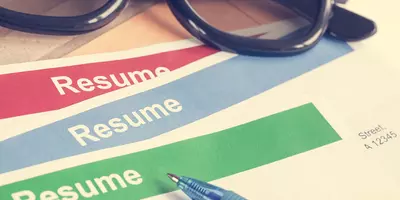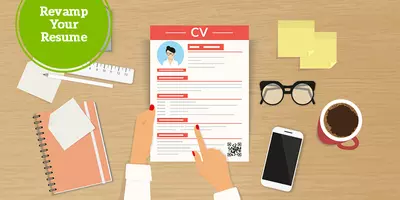
Oct 7, 2015 ● Miranda Pennington
Revamp Your Resume: 21 Mistakes to Avoid
1. Broad, vague examples of work experience
"Essentially," "Basically," "More or less" = I am trying to hide what my real job was and pretend I had a different job. Use numbers, facts, and measurable results to make the case that you were a productive and engaged employee.2. Listing duties instead of accomplishments
Think about how to frame your sometimes mundane daily to-dos as achievements: "Successfully coordinated office staff meetings and payroll," "Completed annual reorganization of the medical library on schedule and with innovative twist on the Dewey Decimal system", etc.3. A watered-down, generic objective
"The opportunity of a lifetime" "The career that touches the hearts of America" "Great opportunity in office setting" "Seeking a desk with chair" If you can't do better than these, skip the objective.4. A one-size-fits-all vibe
I know it's tempting to try to be the ideal candidate for any and every job that crosses your path, but the truth is it's a) impossible and b) going to result in a super boring resume. Be your poised, professional self on the page—tailor your experience to the specific responsibilities the job seeks. Don't try to be all things to all people.5. Incorrect contact information
Make sure your address, phone, and professional email (not skateboarderyahoo@hotmail.com, please) are all up to date and spelled correctly. You don't want to lose a gig because they had to track you down by carrier pigeon.6. Too much creativity
What so swirly fonts and elaborate stationary and clip art all have in common? They have no business migrating from your scrapbook to your resume. Keep it clean and sharp and polished. A resume should not look like an art project.7. Typos and grammatical errors
Have an exceptionally literate friend read your resume. Then turn it upside down and read one line at a time with a ruler—it's the best way to spot typos once your brain has started skimming from over-exposure.8. Emphasis on irrelevant previous positions
When I applied for my first editorial positions, I still had my Build-a-Bear Workshop summer on my resume. It came off immediately after I was hired. It was also buried on the second page right above my exemplary skills with Excel and Powerpoint.9. Excessive personal information
Avoid mentioning political affiliations, religious organizations, or any reference to being a "bright and hopeful spirit." You never know what will be read as controversial or inappropriate, and you don't want to find out by pushing someone's "autodelete" button.10. "References available upon request."
Unless you are Captain Obvious applying for an unnecessary superhero job, this one comes with the territory. Presumably somewhere you have worked before there is at least one living soul who can verify your general fitness for employment.11. Salary history and/or salary requirements
It's like having dessert at a wedding—wait until it's offered.12. "Resume" as the title
Your name should be front and center at the top of your resume, with the job you're applying for as the optional "title" beneath your name.13. Your present employer's letterhead
I've been trying to decide whether this is tacky or just dumb for 10 minutes.14. More than 2 pages
An important caveat here is if you've been asked to prepare a CV (curriculum vitae), which is most common in academic jobs—if they ask for everything, they want everything. Otherwise, curate and edit it down to 2 pages, max.15. Handwritten notes or corrections
On my very first job application I was so nervous I kept having to white out my answers to routine questions like "Why do you want to work at the snack bar". But then I was 12, and on the swim team, so I had an excuse. You are a grown up and it is 2015. You do not.16. Piling your job-related skills and experience at the bottom
This is really the only thing employers care about. They read everything else to be polite. Put it up top!17. Non-specific keywords
"Enthusiastic." "Focused." "Detail-Oriented." "Team Player." Delete, delete, delete, delete.18. Old and outdated experience
Always update your skills and your work history as soon as the offer letter is dry; if you're filling in gaps due to illness or family obligations, see if you can capture the experience you gained from volunteer opportunities to cover time when you would ordinarily have been working.19. Pictures of yourself
I recently read about a Portland Trailblazer's cheerleading audition. They had to turn in headshots. And their measurements. It was grim. Unless you're heading to a dance callback, ditch the selfies. Don't describe your physical characteristics or appearance either.20. Honorable mentions
High school certificates, participation ribbons, scholarly awards (unless you're going for a job with some research components), eating contests, beauty pageants... unless somehow you know for 100% sure it's relevant, leave it off and stick to the transferable skills.21. Reasons why you left a company or position
The time to finesse "I flipped my boss's desk over and kicked the copier down the stairs" is in your second in-person interview, if you get one (mention your "uncontainable passion" for your job). On your resume, don't get defensive or feel like you need to explain your start and stop dates.Resume Mistakes - 21 Things NOT To Include On Your Resume
Read More at www.medreps.com


